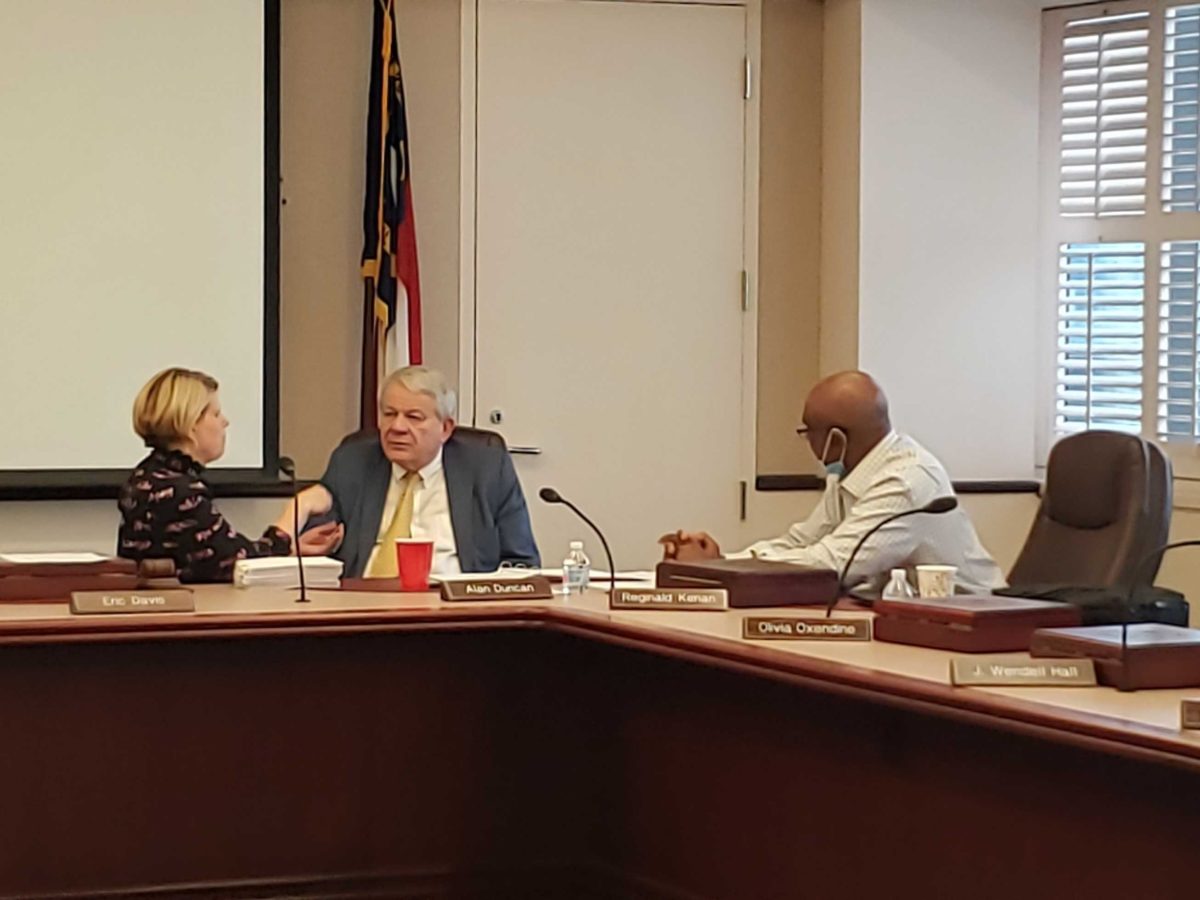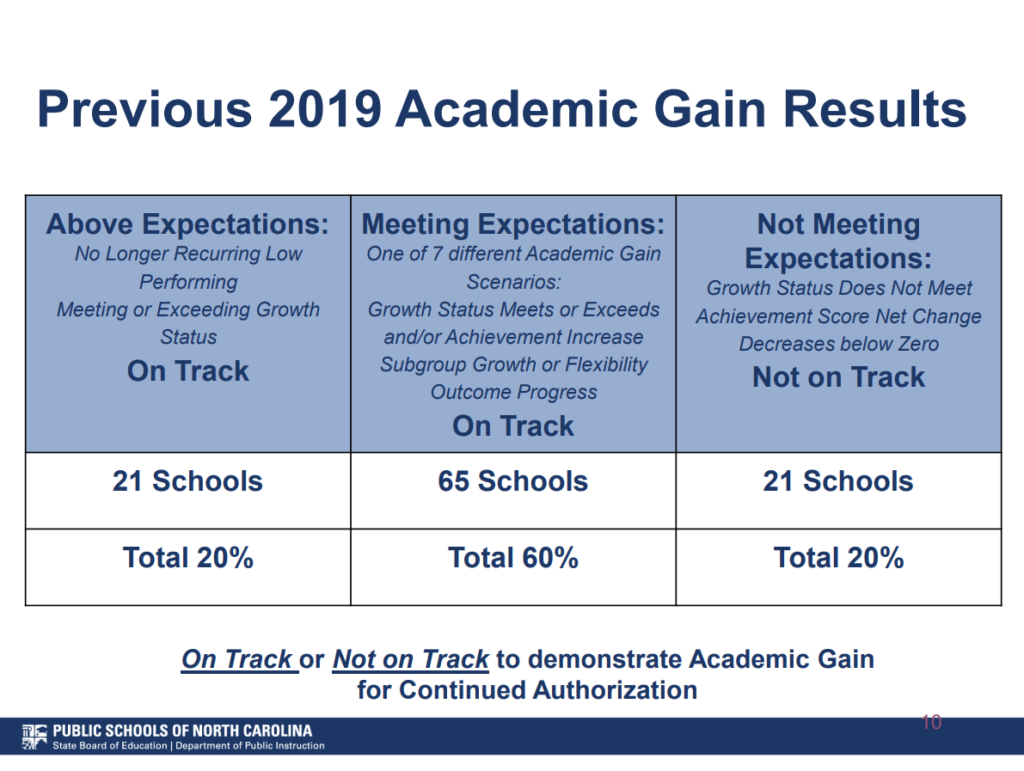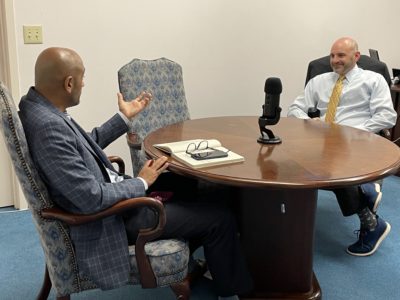

|
|
At the State Board of Education’s November meeting, Board Member Amy White compared schools dealing with COVID-19 to fighting a fire.
“When you think about a fire, it’s a crisis, right?” she said. “And what happens when there’s a fire? We send out fire trucks with sirens and loud blazing horns and we announce that we are fighting the crisis.”
If that’s the case, programs like Restart are the teams that work to rebuild, White said.
Restart is a program the state adopted in 2016 that allows recurring low-performing schools to have charter-like flexibilities. Schools can use this flexibility in a variety of ways, including in how they spend funds, adjust the calendar, or hire teachers.
The Board heard Restart’s annual report for the 2019-2020 school year and voted to extend the monitoring cycle from 5 years to 7 years due to pandemic disruptions to testing.
As of the 2021-22 school year, there are 152 Restart schools.
As part of the annual report, schools are typically required to submit information about their growth status, achievement scores, and subgroup growth status. However, the state and federal governments waived these performance measures for the last two school years due to COVID-19.
Though the program doesn’t have these measures for the 2019-20 school year, results from the 2018-19 school year showed that 80% of Restart schools were meeting or exceeding expectations.


Schools reported how they used flexibility in these areas: budget, employment requirements, calendar, curriculum, and assessment. In practice, said Juliane Garber, reform model support lead at the state Department of Public Instruction (DPI), schools use a variety of these strategies.
According to the report, the vast majority of Restart schools utilized budget flexibility during the 2019-20 school year. For example, many of these schools reported using funds for professional development, additional staff, and incentives.
A little less than half of the Restart schools reported using employment requirement flexibility. Of these schools, the two major strategies were hiring non-certified staff and placing certified staff in a position outside of their certification.
About a quarter used calendar flexibility to do things like add teacher workdays, add time to the school day, or have an early start or end to the school year.
Thursday’s meeting came after the Board devoted two days to its biannual planning session, where much of the conversation focused on education and equity. Board member Jill Camnitz said this conversation about Restart schools was a “perfect example of dots connecting” for her.
She pointed out that the Board is increasingly hearing from districts that increasing flexibility, especially budgetary flexibility, would be beneficial.
“That’s something we really need to think about when we talk about legislative agenda or priorities for us,” she said.
Garber highlighted the importance of monitoring. The schools exceeding growth, she said, were the ones able to measure and evaluate their progress.
“How can you ask a school to implement an innovative practice and tell us how it’s working if they don’t know how to track it?” she said.
White said this lesson doesn’t just apply to Restart schools. She specifically said the Board and DPI need to be tracking how federal Elementary and Secondary School Emergency Relief Fund (ESSER) funds are being used.
“We absolutely need to be tracking how those dollars were spent, and was there a positive outcome? If there was not, we do not need to continue that practice,” she said. “And that same conversation can be transferred to Leandro and any dollars or resources that might be given… Otherwise we’re taking dollars and throwing them down the drain.”
Vaccine mandates
The Occupational Safety and Health Administration issued an Emergency Temporary Standard (ETS) for COVID-19 vaccines this week. The ETS requires all employers with 100 or more employees to mandate COVID-19 vaccines or weekly testing for employees.
This includes public school districts with 100 or more employees.
In response, state Superintendent Catherine Truitt issued a statement saying it was one of the “clearest examples of government overreach and one of the purest attacks on personal choice.”
“North Carolina’s public school system is already facing severe hardship and staffing challenges as a result of the pandemic,” she continued, “and a mandate such as this only has the potential to exacerbate these concerns.”
She said she plans to work with the N.C. Department of Labor to implement a different plan for the state.
Here’s what else you need to know
The Office of Learning Recovery and Acceleration presented its research and evaluation plan to combat the impact of lost instructional time.
DPI has started updating its digital learning plan, originally passed in 2015. Dr. Ashley McBride, Digital Learning Initiative consultant at DPI, said they hope the new plan will address additional needs and concerns brought on by the pandemic. This plan should come before the Board next summer.







